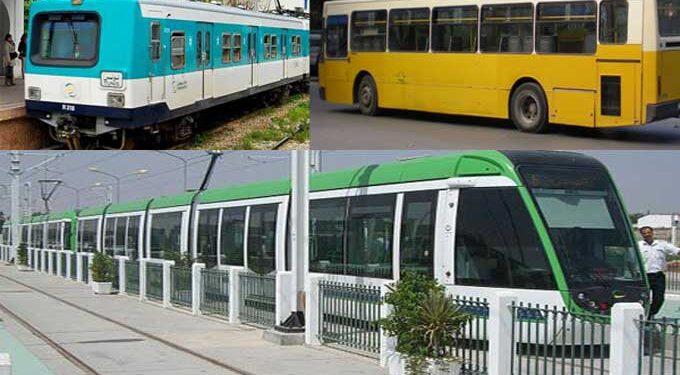The general strike in the land transport sector began this Wednesday in Tunisia on Wednesday. The General Federation of Transport, affiliated with the UGTT, published a press release to explain and justify this social movement, accusing the government of adopting a “policy of fleeing forward” and of being “contempt” for the sector.
A “suffocated” sector under pressure
In its press release, the federation denounces a public transport sector in “Unprecedented suffocation”victim, she said of a “Systemic disinterest” from the Tunisian authorities. “Our institutions are marginalized, ignored, and their vital role in national cohesion is despised”underlines the text.
The UGTT claims to have “All attempted to avoid climbing: dialogue, concessions, patience … But in the face of government contempt, we were forced to strike”.
A sector in crisis despite government efforts
If the General Federation of Transport denounces failing management, it should be recalled that the government has launched several initiatives aimed at Modernize public transportespecially in the Grand Tunis.
Among these measures, a development program for bus and metro networks is underway, with the arrival of new vehicles, some of which were imported from China, which already circulates on certain lines. These efforts aim to improve the urban transport offer and to unclog the capital.
However, for unions, these technical advances remain insufficient in the face of the persistent degradation of working conditions, delays in the payment of wages, and the lack of clarity on structural reforms. They believe that this progress does not compensate for deficiencies in the management and financing of the sector.
A hand stretched but a firm tone
Despite this large -scale action, the general transport federation ensures that its hand remains “Tenty for a serious and responsible dialogue”. However, it maintains its firm position, holding the government “Completely responsible for the failure of negotiations”.
The movement, which started this morning throughout the national territory, would have been “Massively followed”, with a claimed participation rate of 100 %.
A fight that is long -term
This strike comes at the end of several months of tensions between the unions of the sector and the ministries concerned. The claims relate mainly to the degradation of working conditions, delays in the payment of wages in certain companies and the absence of visibility on the reforms promised in the sector.
The UGTT concludes with determination: “Our struggle will continue. Public transport will not be sold or abandoned ”.
Tunisia: a plan to integrate more than 1,300 buses in public transport








